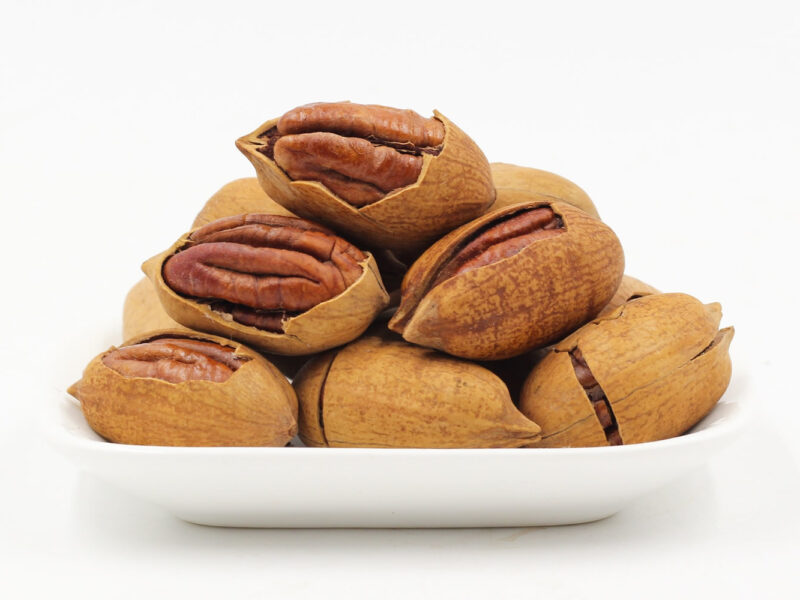The pronunciation of pecans is still controversial. However, University of Georgia researchers found that the eating pecans can dramatically lower cholesterol.
In a study by the UGA College Family and Consumer Sciences, participants at risk of developing cardiovascular disease experienced significant improvements in their total cholesterol, triglycerides, and low-density cholesterol (LDL) levels.
Jamie Cooper, who is a professor in FACS’s nutritional sciences department and one of the study authors, stated that the dietary intervention “when placed in the context of other intervention studies was extremely successful. Some people actually dropped from high cholesterol levels at the start to low cholesterol after the intervention.”
Participants who ate pecans saw an average drop in total cholesterol of 5% and LDL levels between 6% to 9%, according to researchers.
Researchers referred to a prior meta-analysis that examined 51 exercise programs to lower cholesterol. This analysis reported an average decrease in total cholesterol of 1% and LDL cholesterol of 5%, respectively.
Cooper said that eating pecans into the diet led to a greater reduction in total cholesterol, LDL and other lifestyle factors. Cooper also stated that it may be a more sustainable strategy for long-term good health. According to some research, even a 1% drop in LDL has been associated with a modest reduction in coronary artery disease risk. These reductions are clinically meaningful.
Researchers divided 52 adults aged between 30 and 75 who were more at risk for developing cardiovascular disease into one of three categories.
One group ate pecans 68g (or about 470 calories) per day as part their regular diet. A second group substituted for pecans for the same amount of calories. A control group didn’t consume pecans.
Participants ate high-fat meals for eight weeks to assess changes in blood lipids, and blood glucose.
Fasted blood cholesterol showed similar improvements between the two groups. Post-meal triglycerides were lower in the group that included pecans. Post-meal glucose was lower in the pecan substitute group.
Cooper, who is also director of UGA Obesity Initiative said, “Whether people added them or substituted other foods in the diet for them, we still saw improvements and pretty similar responses in total cholesterol and LDL cholesterol in particular.”
Researchers looked to the pecans’ bioactive qualities as possible mechanisms for the improvement.
High levels of healthy fatty acid and fiber in pecans have been linked with lower cholesterol.
Source: https://www.uga.edu/

